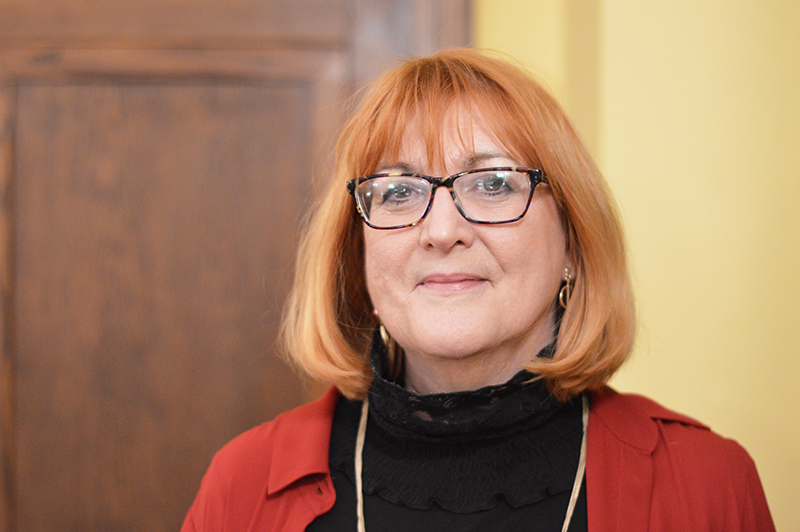Education
Education is one of the most powerful means for change and growth in the modern world. If you are interested in the psychology, politics or social and cultural contexts of education and learning, you can study it on the Education tripos at St John's College.
Education at Cambridge
The course at Cambridge is a rigorous and rewarding interdisciplinary degree. You will follow one of three tracks, combining in-depth study of a particular field of interest with an examination of wider educational and social issues.
- The Education, Psychology and Learning track focuses on education from a psychological perspective; exploring human development and education in a variety of social and cultural environments.
- In Education, Policy and International Development you consider historical and contemporary discussions concerning these areas, and education's role in economic and social change.
- Education, English, Drama and the Arts combines the study of drama and/or English literature with key issues in education, such as debates around creativity, learning and culture.
Course
Course Outline
In your application (SAQ) you should indicate which track you are interested in studying.You attend four to six lectures and seminars and one or two hours of supervision per week in the first year. You are assessed at the end of each year. Depending on the papers studied, this will be through coursework, written examination, or a combination of both. In the third year all students also submit a dissertation.
|
Year 1 (Part IA): You take four papers, including 2 compulsory Education papers:
Your two remaining papers are determined by the track you are following:
|
|
Year 2 (Part IB): In Year 2 you take five papers. Two are compulsory:
You choose your third from several other education topics. The other two papers are dependent on the track you are taking:
|
|
Year 3 (Part II): You take five papers in the final year. All students take at least two papers on particular issues in education and write a dissertation of 8,000-10,000 words. For the fourth you can take another issue in education paper, submit a second dissertation, or choose a paper from the options in the other relevant courses. Your final paper is track specific:
|
Teaching
Teaching of Education at St John's

The Director of Studies and Fellow for Education at St John’s is Dr Morag Morrison-Helme. She will oversee your progress through the Education Tripos and arrange your supervisions. Dr Morrison-Helme supervises and lectures on undergraduate, graduate and postgraduate courses in Drama, Creativity and Arts Education and co-ordinates the MPhil in Arts, Culture and Education. Her research involves Applied Theatre and Arts Education pedagogy in schools, Nursing and Health Care education.
Your teaching and supervisions will be undertaken by a wide-range of world learning researchers of international standing in the field of Education, Sociology, Psychology, History and Philosophy. The Education tripos will suit any student who is interested in a flexible course that enables the study of more than one discipline. The Tripos offers the opportunity to continue onto the Post-Graduate Certificate in Education, ranked as the best teacher training course in the country (The Good Teacher Training Guide 2017).
St John’s is an excellent choice if you wish to study Education. The College has a brilliant library and good student computing facilities. Apart from Scholarships and Prizes awarded for academic distinction, special book grants and funds for travel and courses and conferences are also available. These combine to make St John’s an excellent setting for undergraduate studies in Education. The College also has a number of post-graduate students pursuing PhDs in Education, and usually has several PGCE students a year who are training to be teachers.
Entry Details
UCAS Code: X300
Typical Entry Requirements
A Level: A*AA
International Baccalaureate: 40-42 points, with 776 at Higher Level
Essential Subjects: Applicants for the Education, English, Drama and Arts track are required to have A-Level English Literature/English Literature and Language (or equivalent).
Desirable Subjects: Generally applicants are welcomed with any combination of A Levels/IB or equivalent (excluding General Studies and Critical Thinking). It is useful (but not essential) for applicants to have additional AS and A-levels in one or more of the social sciences, e.g. Sociology, Psychology and History.
Submitted Work: None
At-interview Assessment: Education applicants will be required to sit an at-interview written assessment at the College.
Admissions Interviews
Details regarding the operation of admissions interviews in the 2020-2021 admissions round have yet to be confirmed.
People
Director of Studies
Dr Morag Morrison-Helme
Tutor
Dr Matthias Dörrzapf
Subject Fellows
Dr Morag Morrison-Helme
Further Information
Further Information
The Faculty of Education website contains full information for prospective applicants. If you are interested in the Education tripos, we strongly recommend you take the opportunity of coming to one of our Open Days and discussing the course with the Director of Studies, Dr Morag Morrison-Helme.